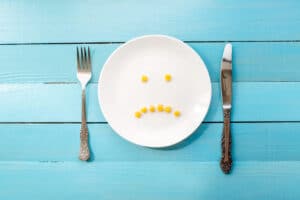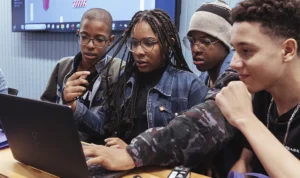The term sustainable economy comes in the wake of other similar terms on the rise in discussions by major world leaders. Therefore, it is estimated that the race for sustainability be a crucial agenda for at least 70% of organizations in 2022.
There is talk of race not for nothing, after all, human beings have been operating in an ecological deficit since 1970. Earth Overshoot Day It is a milestone for the date on which we consume the natural resources predicted to renew the environment within a year.
This has been happening earlier and earlier. In 2021, it was on July 29th. A worsening in the indices, as in 2020 there was a considerable improvement, due to social isolation, when the milestone occurred on August 22nd.
Humanity, therefore, uses natural resources far beyond what it could, and that is the key to the issue. Is there a capacity that would be “healthy” and not exhaust resources?
Therefore, the sustainable economy aims to evolve this very current discussion and if you like to be well informed about relevant contemporary issues, you can count on us.
Finally, find out what it is, the importance and the steps taken by people and corporations that defend the sustainable economy model.
What is a sustainable economy?
Firstly, sustainable economy are the ways of thinking about processes related to the use of resources necessary for well-being, taking into account harmony with nature. It is a model that within the predominant system in the West – capitalism – aims for profit, but is aware that resources are finite.
Thus, within this perspective, achieving development and consumer goods is concomitant with concern for nature preservation. The proposal is to rethink the economy in a way that does not harm the environmental balance.
However, the concept is broad and has different approaches. In this way, economists have been laying the foundations for a description of the concept. According to the work of Ignacy Sachs, sustainable economy is the allocation and management of resources and a constant flow of public and private investments.
As for Ricardo Abramovay, author of the book Far Beyond the Green Economy, the economy should not be guided by its own growth, but also by real results in social well-being. Therefore, a sustainable economy, according to him, must recognize that there is a limit to the exploitation of ecosystems.
How important is a sustainable economy?
Given the writings of the main theorists of this concept, what seems to dictate the importance of a sustainable economy is “recognizing the limits”. For Pavan Sukhdev, an Indian economist, land should be treated as a spacecraft with finite resources.
In a conference held on December 8, 2021 at the event Frontiers of Thought, the president of the World Wide Fund for Nature addressed the topic. According to Sukhdev, for a long time we lived in a “cowboy economy” in which society did everything it could.
However, when reaching planetary limits, it is necessary to move towards a more sustainable and egalitarian economy so that future generations can prosper.
Furthermore, the sustainable economy is not a set of practices restricted only to the financial sector. All other sectors must adopt practices that aim for collective well-being.
It is not only a new way of looking at the economy, but also a new way of acting and thinking in the face of a worrying global scenario. This “culture sustainable”, with several concepts that we cover on our portal, is beneficial for the whole world.
How to put a sustainable economy into practice?
It was in April 1987, at the Brudtland Commission, where the first report came to the conclusion that new practices were necessary. However, the consumption pattern of that time, which has intensified to this day, is detrimental to the future of human survival.
In order to put into practice in the short and medium term what is an urgent demand that has been going on for almost 40 years, some moves are necessary. A big step by governments, companies and NGOs to create the necessary parameters and those famous small but very important steps taken by each citizen in their daily lives.
And some of the tips we are going to give may seem baffling, however, they are extremely important practices for this more sustainable culture – and economy –, still ignored by the majority of the population.
- Transport: think about urban mobility. Create cycle paths and forms of driving that reduce the number of cars on the highways. One of the main causes of air pollution is vehicles powered by fossil fuels.
- Energy: optimize the use of electronics and be careful about unnecessary use of electric light. Furthermore, it is important to take advantage of the natural light and invest in renewable energy systems.
- Recycling: reuse of packaging, clothes, bottles, among other materials that may have a new path. Garbage is one of the biggest polluters and can cause air pollution, especially when incinerated, in addition to polluting soil and water.
Examples of sustainable economy
Every action that takes into account the finiteness of resources and thinks about the future of the next generations is within the sustainable bias. Examples of sustainable companies look for innovative tools that are not harmful to the environment to carry out day-to-day tasks.
Almost all product sales occur within packaging. Whether purchasing at the physical POS or via delivery. A company that wants to follow a sustainable economic model can, for example, generate reusable or plastic-free packaging.
Considering that Brazil is the fourth largest producer of garbage in the world, the change that may seem small means a great transformation. And we have to talk about being an example too, after all, when we propose this transformation, it is expected that more and more institutions and people will be interested in the sustainability.
Which type of economy is most sustainable?
It is still too early to talk about a more or less sustainable economy. With the concept still dissipating among society, different models are emerging and can assume this “more sustainable” position.
What can be done, therefore, is to cite already established examples to be followed. A circular economy proposes a new way of manufacturing and consuming products. The aim is to extend the useful life of products as much as possible and encourage reuse to reduce waste.
Sustainable economy in times of globalization
The damage caused to the land is done to small portions of individuals or groups in their territories. The planet, however, ends up suffering the accumulation of this damage and it is not just through individual actions that the panorama must change.
In this way, the line followed by French thinker Félix Guattari defends the emergence of a political, social and cultural revolution, which reorganizes the production of material and immaterial goods.
Of course, as we have said before here, everyone doing their part is important within the sustainable economy. Still, the ecological crisis we are experiencing depends on planetary actions. And that is why we see more frequent movements between the UN and world leaders on sustainability and climate issues.
On the one hand, globalization has accelerated development advances within capitalism and, consequently, pollution and resource use. On the other hand, it can enable the use of technology by the great powers result in specific solutions.
Sustainable development and green economy: what’s the difference?
Sustainable development is the ability to meet the needs of the entire population in life without compromising the needs of the future generation. It is a way of developing with planning and awareness, without harming the environment and safeguarding resources.
The green economy is a broader concept. The central idea is that the set of production processes in the world contribute to sustainable ideals, both in social and environmental aspects.
In Brazil, a series of programs are underway or being created to raise awareness of a more inclusive green economy.
Sustainable economy in Brazil: challenges and opportunities
Brazil is a country very rich in natural resources and it is a challenge to know how to harness this energy potential responsibly. Therefore, it is the duty of the institutions based here to turn on the warning signal so that we can reverse unfavorable situations, such as being in the fourth place in the ranking of polluting gas emissions in the world.
In the pillar of iFood's sustainable projects is the iFood Regenerates, which encompasses a positive environmental impact plan with goals to be met by 2025. The objective is to end plastic pollution in all delivery operations and become a neutral company in terms of carbon emissions (CO2).
When signing the UN Global Compact, we reaffirm our commitment to the sustainable economic model. Finally, here at iFoodNews, you can follow a series of projects in the wake of this design, such as new delivery models and ways to replace the use of fossil fuel-powered vehicles.


